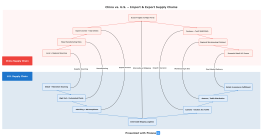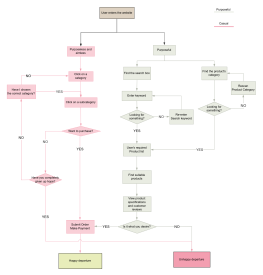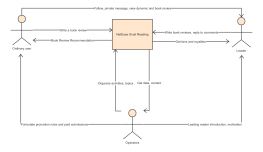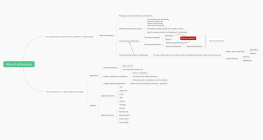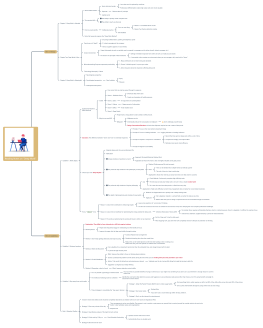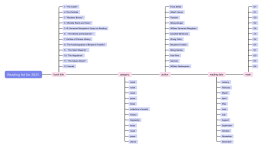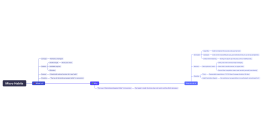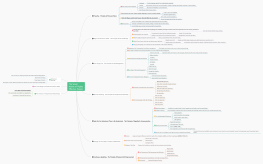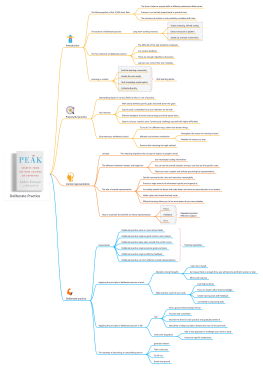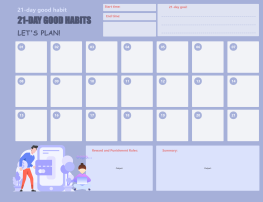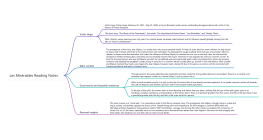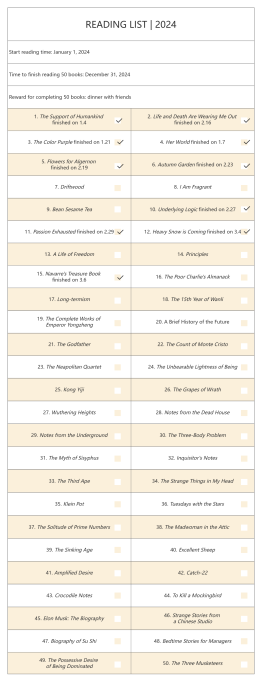Reading Notes-Rich Habits
2024-12-02 11:01:20 121 2 Report 0
1
Login to view full content
Other creations by the author
Outline/Content
The types of habits
The influence of habits
1. Habit brings happiness
When one or more neurons (i.e., brain cells) pass information to each other, they secrete a chemical substance called neurotransmitters.
Dopamine is the neurotransmitter of happiness. It is one of the 60 neurotransmitters produced by the brain. When neurons release dopamine, we feel a feeling called happiness. If the level of dopamine is below a certain baseline, we will feel sad.
What activities can boost dopamine levels and overcome sadness and depression?
Daily exercise
Daily study
Build good interpersonal relationships
Cultivate a positive attitude
2. Habits lead to financial success
Savings Bucket Strategy
Step 1: Set up 4 different savings buckets, each used to place different types of savings.
1st Savings Bucket: Retirement Reserve Bucket.
Savings Bucket 2: Special Expenditure Bucket.
Savings Bucket 3: Emergency Expenses Bucket.
Savings Bucket 4: Periodic Expenses Bucket.
Step 2: Set savings goals
In order for the savings bucket to work, we must determine how much can be allocated from our monthly income as savings (e.g. 10% of our net income), and then distribute this 10% to each savings bucket.
Step 3: Set up the automated savings process
All is ready, and we have reached the final stage of saving: each month, the set amount of savings for each category will be automatically transferred to the corresponding independent account for each savings bucket.
10 ways to help us manage expenses and increase savings
Several principles for daily expenses
Housing-related expenses do not exceed 30% of net income.
Spending on food should not exceed 15% of net income.
Expenditures related to entertainment and gifts should not exceed 10% of net income.
Expenses related to cars do not exceed 5% of net income.
Vacation expenses do not exceed 5% of net income.
Don't gamble
Buy gifts in moderation
Spending on clothing should not exceed 5% of net income.
Avoid impulse shopping - impulse is the devil.
3. Habit brings health
Stick to exercising every day.
Healthy diet
4. Habit makes us smarter
We know that the brain changes every day. We have the opportunity to "remold" the brain (also called "neural remodeling") throughout our lives, even at the age of 80.
What behaviors can improve brainpower?
Daily study
Stick to aerobic exercise every day.
Drink in moderation
Sleep well
Try something new
At least 3 weight training sessions per week
5. Build efficient interpersonal relationships
4 telephone strategies
Greeting Call
Happy birthday greetings call
Call for life events
Participate in volunteer activities and expand your network.
The Habits of the Rich
1. Persist in reading and self-studying every day
At least 30 minutes of aerobic exercise every day
3. Establish relationships with other people who also have a mindset of success.
4. Pursue your own set goals
5. Dream first, goals follow
6. Avoid wasting time
7. Sleep 7 to 8 hours every day
8. Get up early
9. Develop multi-channel income
10. Never procrastinate
11. Find a Success Mentor
12. Maintain an optimistic mental state
13. Draw a blueprint for life
14. Pursue your passion
15. Persistence
16. Do not follow the crowd
17. Show good manners
18. Mentoring and guiding others
19. Find supporters and avoid malicious reviews
20. Believe in yourself
21. Lend a helping hand to others' success
22. Make thinking a daily habit
23. Dare to make demands
24. Avoid negative things
25. Take on moderate risks
26. Seek feedback
Change habits
Change habits
Awareness of one's habits
Evaluate your own habits
Follow-up Table for Rich Habits
Phase 1: Morning Routine
Phase Two: Daytime Habits
The third stage: Evening habits
The shortcut to changing habits
1. Merge habits
2. Limit interpersonal interaction
3. Change the environment
4. Start with small habits
5. Add new habits to your to-do list
6. Overcome bad habits
Book Introduction
The book introduces some self-disciplined habits that rich people have, helping us examine our own work and living habits to better narrow the gap.
Preface
What is the difference between the behavior of the rich and the poor?
The rich care about their physical condition.
The rich read.
The rich cultivate connections.
The rich are the decision-makers.
The rich讲究礼仪
The rich are full of passion.
The rich set and pursue ambitious goals.
The rich often say "no"
How do the rich speak?
The rich never gossip.
The rich will call to send birthday greetings.
The rich will call to express their greetings.
The rich will call to pay attention to important moments in each other's lives.
The rich don't say what they think.
How do the rich think?
The rich believe in themselves.
The rich believe that diligence can make up for lack of talent.
The rich believe that persistence can bring good luck.
The rich have an optimistic attitude.
The rich know how to control their emotions.
The rich believe that honesty is the best policy.
The Habits of the Rich
Promise 1: I will cultivate my daily habits of abundance and do it every day without fail.
Commitment 2: I will set daily, monthly, annual, and long-term goals, and then devote myself wholeheartedly to pursuing my goals.
Promise 3: I will improve my self-worth every day
Promise 4: I will pay attention to my physical health every day.
Promise 5: I will build and maintain sustainable relationships every day
Promise 6: I will live a disciplined life every day.
Promise 7: I will tell myself "Do it now" and complete the tasks for the day on time.
Promise 8: I will face life with a mindset of wealth creation.
Promise 9: After each salary payment, I will set aside 10% for savings.
Promise 10: I will control my thoughts and emotions every day.
Get to know habits
Habits are divided into three categories.
subconscious behavior
subconscious thoughts
A subconscious decision
The brain structure that affects habits
basal ganglia
Manage people's habits.
The basal ganglia are located deep within the brain, within the limbic system, and are the core area controlling people's subconsciousness and habits.
The function of the basal ganglia
When the basal ganglia issues an instruction to execute a habit, certain brain cells in the brain are activated, and people begin to unconsciously come up with certain ideas, make certain behaviors and make certain decisions.
The basal ganglia will seize the opportunity to do the following two tasks:
1. Label some brain cells as "habit".
2. Issue the command to execute habits to these brain cells labeled.
From the perspective of the brain, cultivating habits is like making an investment.
Synapse
Habit is the result of long-term repetition of behavior and thoughts, and is a by-product of continuous interaction between ordinary brain cells.
Habits affect genes
Everyday habits may cause the human body to turn on or off certain genetic genes, a phenomenon commonly referred to as "gene expression" or "epigenetics".
Activate the bad habit of malignant genes
Excessive drinking
Drug abuse
Eating too much junk food (unhealthy diet)
Lack of aerobic exercise
Eat too much sugar
The brain lacks exercise (not reading, not learning new knowledge and skills)
Negative emotions and negative thoughts
Good habits and their effects include
Persist in reading or learning new skills every day
Stick to aerobic exercise every day
Meditation can turn off the bad genes that cause various diseases.
Optimistic thoughts and emotions
In the book "The Power of Habit", author Charles Duhigg tells us through his excellent research that the process of habit execution is divided into three stages: "cue", "routine behavior", and "reward".
What triggers habits?
1. Visual
2. Auditory
3. Time
4. Pressure
5. Interpersonal Communication Objects
6. Beliefs and Emotions
Master effective strategies
Replace these negative beliefs with positive ones.
Practice: Letter from the Future
Practice: Write your own obituary
Practice: List your dreams and wishes
Practice: Set Goals
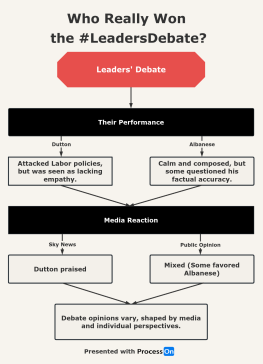
Collect
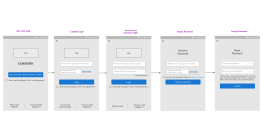
Collect
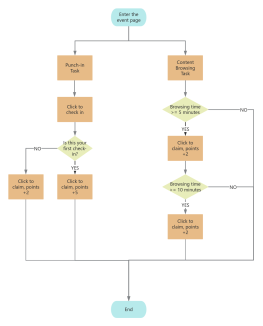
Collect
0 Comments
Next page
Recommended for you
More

